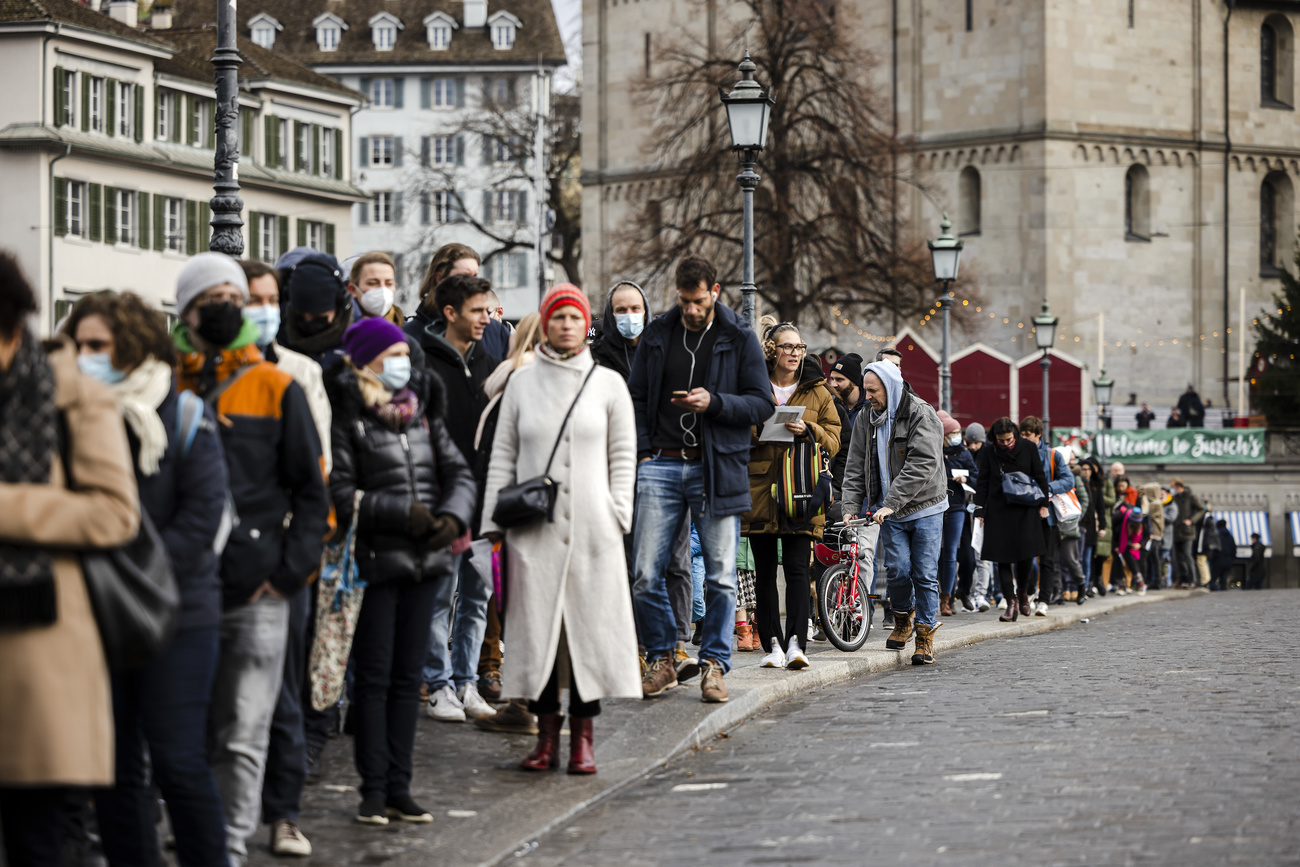Calls mount for crisis team to deal with future pandemics

A few days after most pandemic restrictions were lifted, the Swiss press look back at the lessons from two years in crisis mode and what the country can do better going forward.
“The pandemic took politicians by surprise and presented them with huge challenges,” wroteExternal link the German-language NZZamSonntag.
The coronavirus has shaped day-to-day life for almost two years. As of last Thursday, the outlook is different. The government has said that the acute phase of the pandemic is over, lifting many pandemic restrictions including the obligation to wear masks in stores and restaurants and show Covid certificates.

More
Switzerland lifts most Covid-19 restrictions
But the pandemic revealed many major weaknesses in Swiss structures and systems, notesExternal link the SonntagsZeitung. In many ways Switzerland fared better than some neighbouring countries. The hospitals were stretched to their limits but were still able to provide care, notes the paper. The country was also able to quickly offer financial support to sectors most affected.
There were also two nationwide votes protesting the government measures, but both times they demonstrated public support for the government’s approach to the pandemic.
There were also many problems that hampered the country’s response. It didn’t have enough supplies of masks, disinfectants and protective equipment. The number of hospital beds is still not sufficient argue some politicians.

More
Coronavirus: the situation in Switzerland
The government was caught by surprise, especially in the second wave. “We made the mistake of not taking advantage of the time of this respite [after the first wave] to strengthen our infrastructure and our teams in the fight against the pandemic. In society, the pressure was very strong to return to normal,” Lukas Engelberger, president of the conference of the cantonal health directors, toldExternal linkLe Temps. “We took too long to resume semi-containment measures when the second wave appeared.”
Limits of federalism
Some of the biggest challenges stemmed from the Swiss federalist system. “Federalism reached its limits,” wrote the NZZamSonntag. “The government and the cantons quarreled over who should take action, and then again over the question of who should have more power.”
This slowed things down and created confusion in the communication with the public. “It became clear throughout the pandemic that the Swiss system of consultation and agreement processes takes time, which is lacking in a crisis,” writes the SonntagsZeitung. One area of particular confusion was around schools, with each canton taking different approaches on protective measures in schools.
Politicians across both right and left-wing parties along with epidemiologists are now calling for a crisis team that includes representatives from different sectors including healthcare, business, education, politics and science.
“We propose a crisis management team like the one that existed at the beginning of the pandemic. In crisis mode – possibly also with decision-making powers,” epidemiologist Marcel Salathé told Tages-Anzeiger in an interview earlier this year.
There are several other areas where the country needs to improve to prepare and prevent future pandemics. This includes the creation of a systematic monitoring system. “We should look for the means to monitor the degree of immunity in the population,” parliamentarian Ruth Humbel told the SonntagsZeitung. This immunity level would help inform whether new measures are needed.
The Federal Office of Public Health decided last June that an external evaluation of the country’s crisis management should be conducted.

In compliance with the JTI standards
More: SWI swissinfo.ch certified by the Journalism Trust Initiative





















You can find an overview of ongoing debates with our journalists here . Please join us!
If you want to start a conversation about a topic raised in this article or want to report factual errors, email us at english@swissinfo.ch.